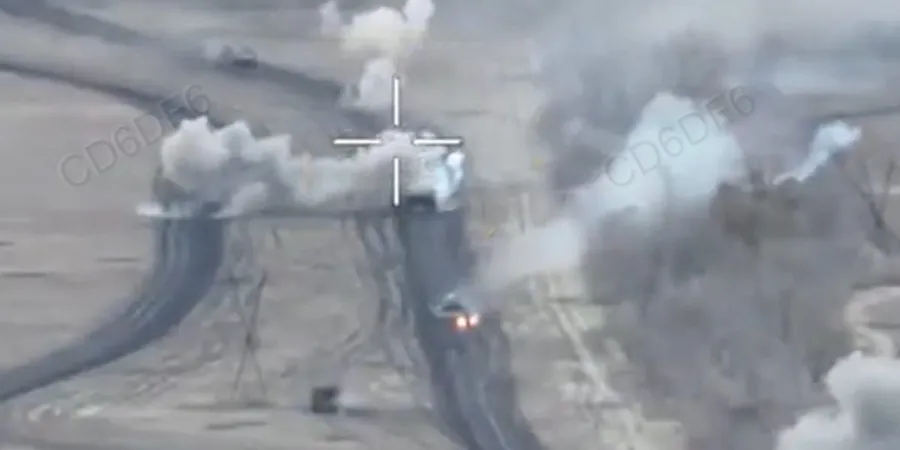
Trump’s Second Term: How a Transformed Middle East Will Shape His Presidency
2024-11-16
Author: Jessica Wong
The Ripple Effects of the October 7 Attacks
October 7 marked a significant historical turning point, characterized by a shocking assault on Israel by Hamas. This tragic event resulted in the deaths of multitudes of civilians and the taking of hostages back to Gaza. As noted by international observers, including esteemed journalists, this attack has shattered long-held assumptions surrounding Israeli-Palestinian relations, pushing the region into a new, unpredictable phase of violence and instability.
During Trump's first term, along with considerable parts of President Biden's administration, the call for Palestinian statehood was largely ignored as Israel maintained tight control over the West Bank and Gaza. However, the devastating consequences of the Hamas attacks have reignited global discussions on Palestinian rights and autonomy, especially in light of Israel's counter-offensives resulting in significant civilian casualties and humanitarian crises.
A New Balance of Power: Israel and Iran
Before the October attacks, Israel and Iran had managed a precarious balance of power through a shadow conflict. Tensions were high, but neither side sought outright war. However, the recent dynamics have triggered a potential escalation in hostilities, especially following Israel's strikes on Iranian assets in Syria and its involvement in the conflict with Hezbollah. This has compelled Iran to respond with missile assaults against Israel, marking a pivotal shift in their long-established equilibrium.
Experts warn that without a new understanding between Israel and Iran, the risk of wider conflict looms large. Should their confrontational dynamic escalate, it could easily ensnare other regional players into a broader conflict.
A Thaw in Saudi-Iran Relations
In a reversal of their long-standing animosity, Saudi Arabia and Iran have recently shown signs of improving relations. Following a diplomatic breakthrough brokered by China in March 2023, both nations committed to reopening embassies and implementing protocols to prevent proxy conflicts. While these efforts remain tentative, the possibility of collaboration has grown, as evidenced by recent high-level communications between Iranian President and Saudi Crown Prince Mohammed bin Salman.
This budding détente between the two regional powers may redefine alliances in the Middle East, potentially impacting the geopolitical landscape for years to come.
A Setback for Arab-Israeli Normalization
Prior to the October 7 attacks, normalization talks between Saudi Arabia and Israel seemed to be on the verge of fruition, promising to reshape Middle Eastern alliances. However, current realities complicate this narrative, as rising antagonism surrounding Israel's military actions has shifted the calculus for Saudi Arabia and other Arab nations. Unless significant concessions regarding Palestinian statehood are made, expectations for a normalized relationship between Israel and its Arab neighbors appear bleak.
The Unpredictable Nature of Trump’s Foreign Policy
During Trump’s initial term, his often erratic foreign policy garnered the nickname "madman strategy," reflecting a broader belief that unpredictability could coerce adversaries into submission. However, such an approach can drive allies away, seeking stability elsewhere. Trump's previous hesitance in responding to attacks, such as the missile strikes on Saudi oil facilities in 2019, has already prompted realignments in regional relations, evident in Saudi Arabia's thawing ties with Iran.
As Trump embarks on his second term, the uncharted waters of a transformed Middle East will undoubtedly challenge his administration. With nominees lacking extensive foreign policy backgrounds indicating strong pro-Israel sentiments, it raises questions about the future direction of U.S. involvement in the region.
The Bottom Line
The Middle East is clearly at a crossroads, and as President Trump prepares to take office once more, he will have to navigate a complex web of relationships marked by violence, shifting allegiances, and pressing humanitarian concerns. This new reality poses both challenges and opportunities, and how he responds may significantly impact not just U.S. foreign policy, but the broader landscape of the Middle East for generations to come. Stay tuned, as this story unfolds!




 Brasil (PT)
Brasil (PT)
 Canada (EN)
Canada (EN)
 Chile (ES)
Chile (ES)
 España (ES)
España (ES)
 France (FR)
France (FR)
 Hong Kong (EN)
Hong Kong (EN)
 Italia (IT)
Italia (IT)
 日本 (JA)
日本 (JA)
 Magyarország (HU)
Magyarország (HU)
 Norge (NO)
Norge (NO)
 Polska (PL)
Polska (PL)
 Schweiz (DE)
Schweiz (DE)
 Singapore (EN)
Singapore (EN)
 Sverige (SV)
Sverige (SV)
 Suomi (FI)
Suomi (FI)
 Türkiye (TR)
Türkiye (TR)